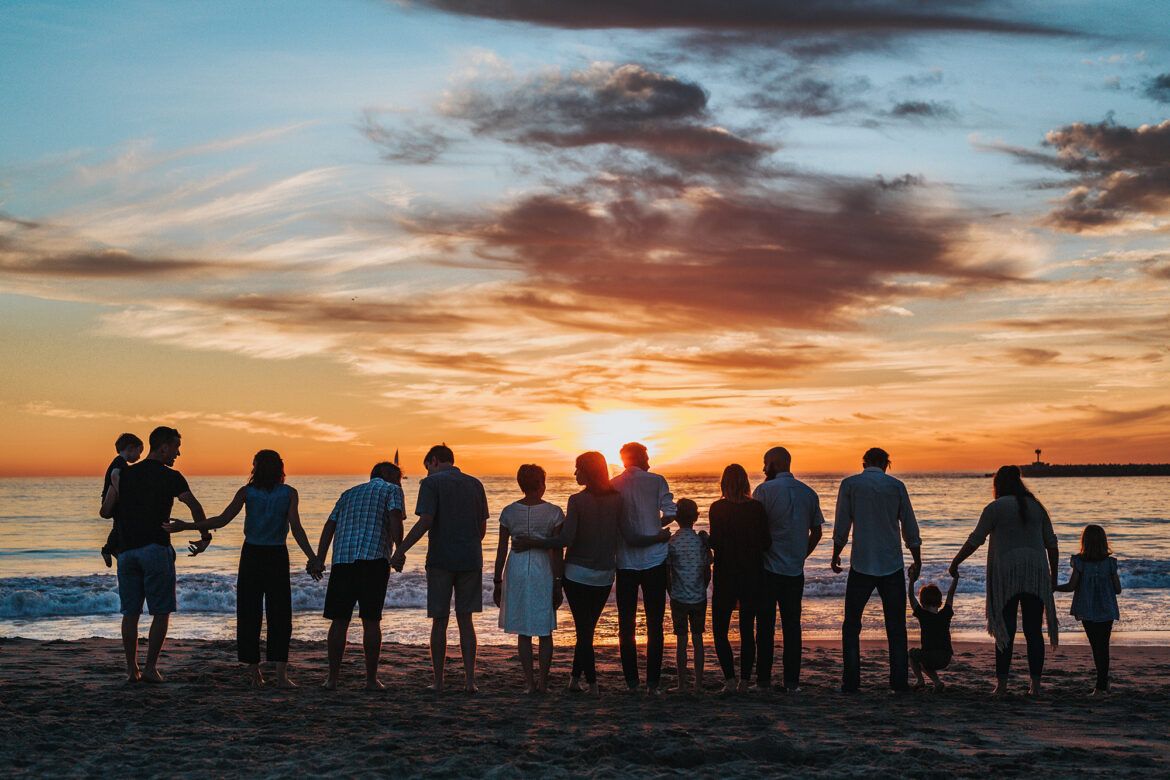Our summer issue is out now. Our parenting correspondent Anna Cole shares a touching story from her life on healing from trauma
A State Of Grace
Healing the community in the face of unfolding trauma
by Anna Cole
The recent geo-political context has put me in mind of an immense loss in my family and the profound love, rather than hate, expressed afterwards by those most directly affected by it. In the summer of 2014 my shocked Mum rang to tell me that Mo (12), Evie (10), Otis (8) and their Grandpa Nick, had been aboard a passenger flight heading home to Australia where they lived, shot down over the Ukraine by a stray Russian rocket.
The three children had been flying home from a once in lifetime family holiday to Europe – at Grandad Nick’s urging, their parents had stayed on for an extra couple of days in Amsterdam to have some rare alone time together. All aboard lost their lives, and many thousands of loved ones were left to grieve. We last saw them the Easter before on a family visit to Australia, to celebrate the birth of my nephew, Walu, then five months old, their newest cousin. In the aftermath, there were calls for retribution from the public, and from several in high office. But within days, the children’s parents issued a message to, “the soldiers in Russia and the Ukraine, politicians, media, and friends and family:”
“Our pain is intense and relentless… we live in a hell beyond hell…no-one deserves what we are going through. Not even the people who shot our whole family out of the sky. No hate in the world is as strong as the love we have for our children, for Mo, for Evie, for Otis. No hate in the world is as strong as our love for Grandad Nick. No hate in the world is as strong as the love we have for each other. This is a revelation that gives us some comfort. We ask everyone to remember this when you are making any decisions that affect us and the other victims of this horror.”
Over the past years I have sought to come to terms with this traumatic loss in my extended family and to think well about how to continue to honour their memory. There are a few guiding lights I’ve used in my journey that others might find helpful in the face of unfolding traumas: Firstly, when digesting trauma and shocking news, we as parents need to talk with others, so we can work through our feelings and reactions.
We need to do this at times when our children are not present, so they don’t have to carry the burden of the emotions we express. We do need to offload our grief. We may need to show our outrage, and fight the helplessness we feel with moments of complete anger. It’s a relief to be supported to show our deeply human responses – crying, trembling and an open show of upset. Accessing our gut feelings can help us recover our ability to use the power we do have.
Once we’re freed from our reactions, there is much we can do in our families and communities to make the world a safer and better place for all to grow up in. It is important for our children to see that we care about people and about justice in the world. But part of our job is to protect them from constant exposure to news of harm and hurt — there is so much effort to connect and repair that finds no spotlight in the news.
I’ve decided to get my news after our children have gone to bed, or when I’m alone in the car. And as my children grow, I’m offering them perspectives and information about change that has come through non-violent protest: Rosa Parks, Martin Luther King and Nelson Mandela for example. And it seems to me that ‘together’ is the watchword for dealing with news of war, violence or death. A healing question is, “What can we do together, as a family, to remember those who died and offer our caring?”
We can ask our children for their ideas and offer our own. Simple acts can help. Light a candle. Have a moment of silence. Listen to our children’s thoughts and choices, and to their feelings as well. We can remind our children of what we do in our families to help each other when someone is feeling hurt. For instance, we resolve fights by listening carefully. We make sure people don’t speak hurtfully about anyone else. We ask someone to listen to our own feelings of upset whenever we can. And we reach out to people we know have had trouble, so that they don’t lose hope or their sense that others care about them.
As the parents of Evie, Otis and Mo said in the face of their horrific loss: “So far, every moment since we arrived home we have been surrounded by family and friends. We desperately pray this continues, because it is this expression of love that is keeping us alive.” As parents we know it takes a great amount of person-to-person love, work and commitment to keep even a small group of people working cooperatively together. It is the heartfelt skills we develop, when we parent or care for children consciously and get support to do so, that are the same skills needed to heal our human community — person by person, family by family, country by country.
Anna Cole, PhD, Regional Lead, Hand in Hand Parenting. handinhandparenting.org


